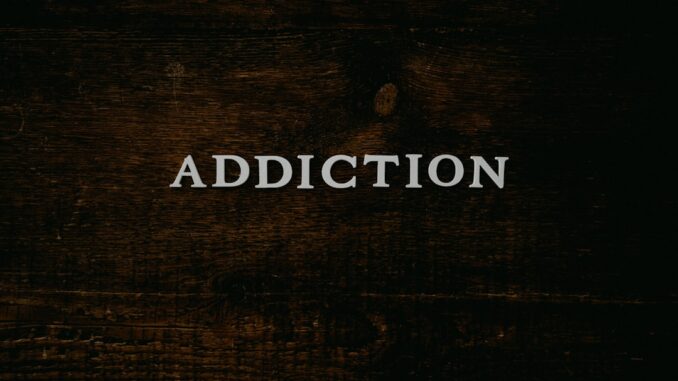
Summary
This article provides a comprehensive guide for individuals recovering from opioid addiction. It emphasizes the importance of support, self-care, and understanding addiction as a disease. The guide offers practical steps for managing cravings, avoiding triggers, and building a fulfilling life in recovery.
** Main Story**
Okay, so let’s talk about navigating recovery, specifically from opioid addiction. It’s a tough journey, no doubt, but definitely a possible one. I’ve seen friends go through it, and honestly, the strength they’ve shown is incredible.
It’s not easy, but breaking it down into actionable steps makes it feel more manageable, right?
First Things First: Honesty is Key
Let’s be real, the very first hurdle is acknowledging you’ve got a problem and accepting that you need a helping hand. Sounds simple, right? But this, this is where it starts. You’ve got to be brutally honest with yourself, that’s where it begins. You have to be willing to embrace change. No sugar coating, no excuses. You have to face the music. This sets the stage for everything else.
Next Step: Get the Right Kind of Help
Now, where do you go from there? Professional guidance is honestly invaluable. Don’t try to wing it alone. A doctor, therapist, or counselor who specializes in addiction? That’s your go-to. They can assess your specific needs, suggest the right treatment options, and basically be your guide throughout the whole process. Things like medication-assisted therapy (MAT) can really help, too. It’s not just about popping pills, though. It combines medications with counseling and behavioral therapies. The goal? To normalize brain chemistry, reduce those killer cravings, and manage those horrible withdrawal symptoms.
And hey, seeking help? That’s not a sign of weakness, that’s strength. Remember that. It’s about being proactive and smart about your health. It’s knowing you need to do this, and doing it.
Building Your Crew: Your Support System
Speaking of help, build yourself a solid support system. This isn’t a solo mission. Family, friends, support groups, even a recovery coach— surround yourself with people who get it. Sharing your struggles and your victories with people who understand that can give you encouragement, and motivation, and can provide a sense of community. Support groups, like Narcotics Anonymous (NA), offer a safe space to connect with others who get it. Remember, you aren’t doing this alone. If you need it, seek it, it will help you.
Understanding Addiction
And that brings me to the next point, educating yourself is crucial. Understand that addiction is a disease, not some moral failing. I mean, its a chronic one. Learning about the science behind it, how it affects your brain, and the recovery process itself? That can be empowering. It can really make the difference. It can also help you deal with shame and guilt. It’s all about arming yourself with knowledge so you can anticipate challenges and figure out coping strategies.
Cravings? You Can Handle Them
Cravings are part of the journey; that’s reality. They will happen, but develop those healthy coping mechanisms to manage them. Try mindfulness, deep breathing, exercise, even just diving into hobbies. Whatever works for you. Then, identify your triggers—people, places, or situations that scream, “Use!” and figure out ways to avoid them. And when those cravings hit? Remind yourself of your goals. Reach out to your support system, tell them you’re struggling. They can help you through it.
Taking Care of Yourself
Okay, let’s talk about something really important: self-care. You’ve got to prioritize your physical and emotional well-being. Do things that feed your mind, body, and soul. Exercise, healthy eating, meditation, nature walks, creative outlets—find what works for you. Self-care? It’s not selfish. It’s about sustaining your recovery. Its critical to ensure it.
Time for Change: Lifestyle Tweaks
Recovery often means making positive lifestyle changes. Build healthy habits, create a routine, and set realistic goals. Explore new interests, rediscover old passions, and focus on creating a meaningful life without drugs. I was talking to a friend who volunteered at an animal shelter during her recovery, and she said it gave her a real sense of purpose. Giving back can be powerful.
Facing the Possibility of Setbacks
Let’s be honest, relapse happens. It’s a possibility, so you have to be prepared for setbacks. Don’t let it derail you! If it happens, don’t give up. See it as a learning experience. Figure out what triggered the relapse and adjust your plan accordingly. Reach out to your support system ASAP for guidance and encouragement. Recovery’s a journey, not a sprint, and sometimes, you stumble. It’s how you get back up that counts.
Long-Term Outlook: Keep Going
Recovery is ongoing. It will continue to be that way, you have to maintain the path. It takes continued commitment, self-awareness, and support. Keep going to therapy, maintain healthy coping mechanisms, and prevent relapse. Attend support group meetings, connect with your recovery coach, and just keep it going. Celebrate your victories, big or small. You can do this, and you can live a fulfilling life free from opioid addiction. I know it.


Be the first to comment